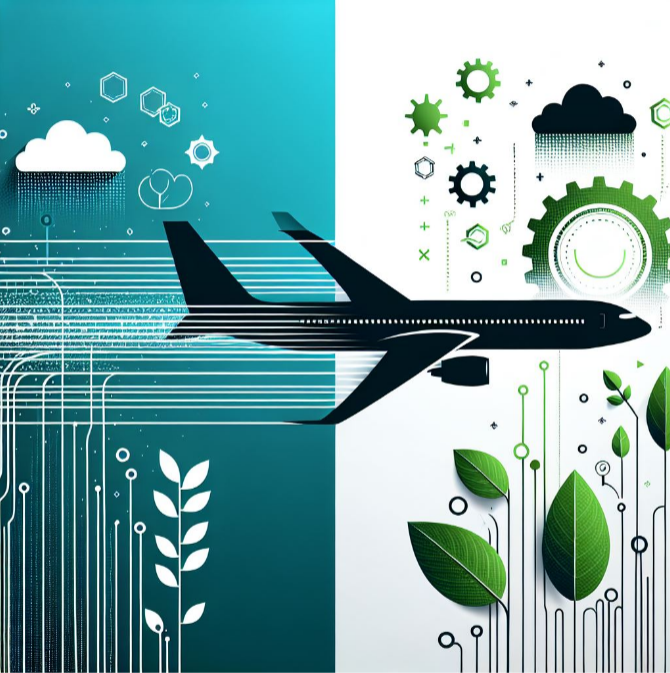Improved data exchange in the aviation industry: a path to sustainability
The aviation industry faces major challenges in the management and exchange of material, component and life cycle assessment (LCA) data. This work package aims to create a standardised, secure and efficient data exchange system to improve data quality, reduce manual effort and support sustainability and regulatory compliance goals.
Key challenges:
- The lack of standardisation of data exchange formats and platforms leads to inconsistencies and inefficiencies.
- The data is often not available in machine-readable formats and is incomplete, particularly with regard to the recycled content, the weight of the components and the origin of the materials.
- Data collection and management requires a great deal of manual effort, which is a burden for SMEs.
- Insufficient documentation of the use phases of components and material composition hinders reusability and recycling efforts.
- Data gaps in the supply chain lead to major uncertainties and a lack of transparency
- There is no standard for calculating and recording life cycle assessment data, which leads to a lack of comparability.
Objective and vision:
- Ensure validated data exchange with quality indicators.
- Reduce the manual effort required to digitise and harmonise data.
- Support compliance with reporting obligations and sustainability targets.
- Development of a set of rules for the assessment of life cycle assessments with a focus on the impact category of global warming potential.
- Improving the reusability and recycling of materials and components by ensuring data availability throughout the entire product life cycle.
 Building a digital ecosystem for an efficient and sustainable Aerospace Supply Chain.
Building a digital ecosystem for an efficient and sustainable Aerospace Supply Chain.